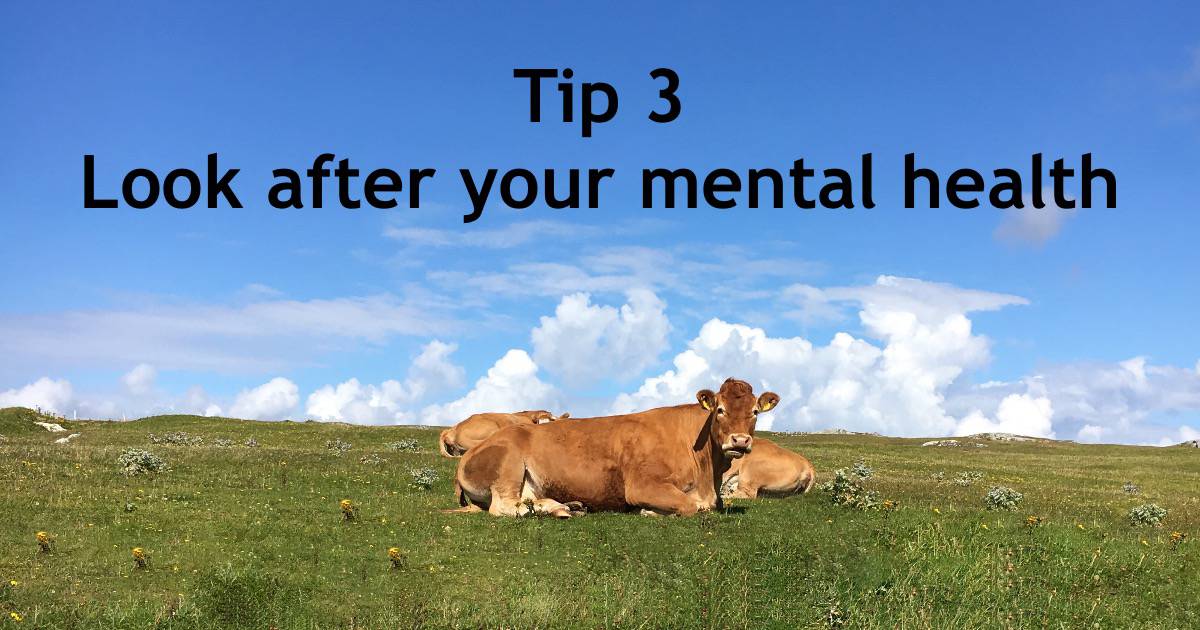Look after your mental health
“Look after your mental health” is really a sub-category of Tip 2 – Be Healthy. When you have a chronic illness that has no cure your life is thrown upside down. At no stage in your upbringing have you been taught the skills of how to manage the impact that it will have on your life, both physically and mentally. It is huge, and can be just like experiencing the death of a loved one, except it will always be with you. It won’t disappear or fade with time. I am not a doctor, and I cannot give you medical advice, but I do have 3 chronic illnesses, and I can let you know my experience, and let you know what I do to look after my mental health.
A week of Anxiety
2-weeks ago I started to have an anxious tummy. It was turning somersaults. This anxiety was starting to rule my life, and I was feeling like my life was out of control. It was crap. It was getting worse, and I could feel myself close to tears every day. I did not like it, and I could not understand what was causing this. It was like a cloud was following me. Depression, which is a reality for the vast majority of people with chronic illnesses, was looking like becoming a reality for me too.
So what did I do?
The first thing I did was to try and objectively look at my life. Was there something that was creating this despair? Firstly, I knew that I have people in my life who love me. That was a positive.
Second, I have a roof over my head, good quality food in my belly, and a safe place to live. Super, things were not so bad.
Next, purpose in my life. Hmmm. This was not so good. I do market research surveys for some of my income, and for the month of August, I had very little work. In fact, I had no work, and I didn’t know if I would have any work in the next few weeks. This was, I felt, a possible cause of my anxiety. Uncertainty about my income, and uncertainty about my role, or purpose, in this world. I found a possible problem.
Lastly, I looked at my health. My symptoms have steadily become worse. Mobility is more of an issue, on top of the constant pain that I experience every day. Again, the future for my illness is uncertain. It could progress and become worse. This will also have an impact on my ability to work. My physical and mental health would have an impact on those around me, and I don’t want to be a cross around the neck of the people close to me. This is my illness, not theirs.
Now that I had found two major areas of my life that have uncertainty attached to them, now I could look for ways to bring certainty. I contacted an organisation that helps people with disabilities to find work. Tick, I phoned them and they are now going to help me find a possible replacement for my current work.
Next, I started researching if there were any medical studies that have been done with my particular set of symptoms. Tick, I found an interesting paper written by Dr Poser in 2000 with something very similar to my situation. Based on this I have contacted the hospital where he worked, and also contacted another teaching hospital that has similar interests. I was back in control, and my anxious stomach had disappeared.
Why does this work?
Being an active, instead of passive, participant in your life direction is critical for maintaining your mental health. You need to objectively look at your life. There is a very interesting book call the “The Chimp Paradox” by Prof. Steve Peters. In this book, the author says that there are two aspects to human reactions. The first is your primitive, emotional brain (your chimp), and the second is the logical human brain. The chimp brain is strong and can be overwhelming, but the human brain has the capacity to overcome this emotional chimp with logic. The key is to acknowledge that you are feeling the emotion, and do not try to suppress it. Find a way to harness this primaeval strength so that you now have a positive direction in your life.
So, what does this mean for you?
In the life of a person with a chronic illness, there will always be uncertainty. The course will never be smooth and linear. How it progresses will be in fits and starts, with surprising changes. These times of change inevitably lead to uncertainty. This can lead to depression if you do not take an active role in how you react to these events.
My Future
I am certain that I will have anxiety again at some stage in the future. It could happen tomorrow or in several years. If I am not careful I could enter the ‘black dog days’ (as Winston Churchill called them) and not return. I have trained myself to stand back and observe how I am reacting, and then take positive, purposeful, steps to bring back control.
Have you any tips, or tricks, to help you maintain your mental health? Let me know in the comments below. Thank you.




One thought on “Tip 3 – Look after your mental health”